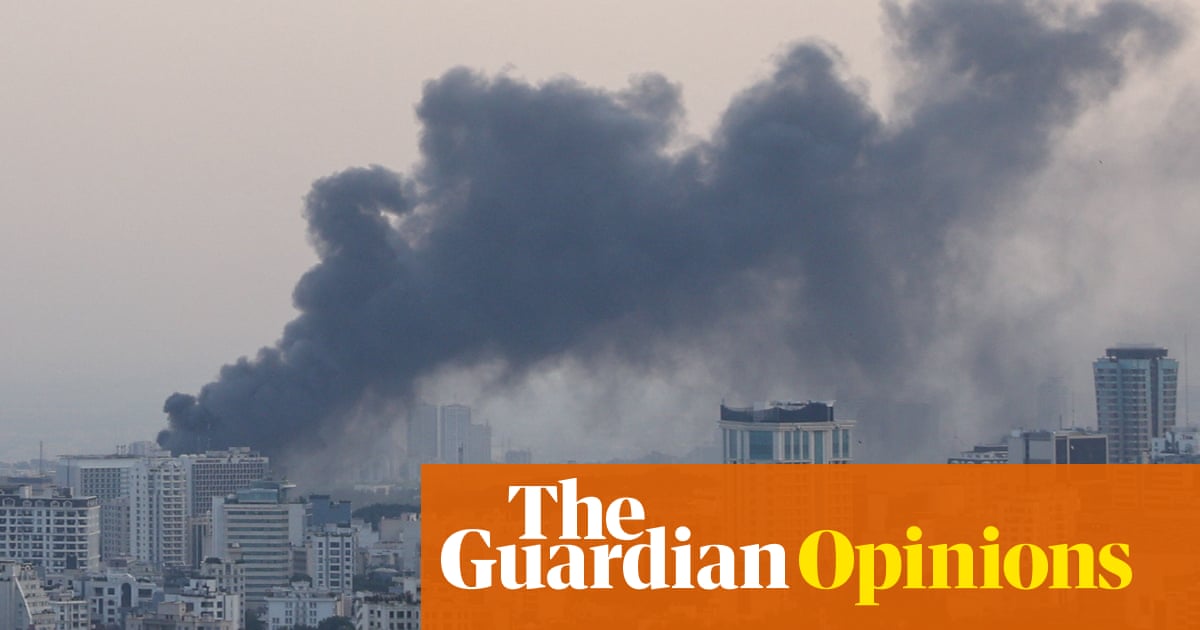Eighty years after the US dropped atomic bombs on Hiroshima and Nagasaki, and 40 years after the US and Soviet Union pledged to reduce their arsenals, the threat of nuclear war has resurged with a vengeance. The age of disarmament is over, a prominent thinktankwarnedthis week: “We see a clear trend of growing nuclear arsenals, sharpened nuclear rhetoric and the abandonment of arms control agreements,” said Hans M Kristensen of the Stockholm International Peace Research Institute.
The world’s nine nuclear-armed states have amassed the equivalent of145,000 Hiroshima bombs. Israel’s illegal attack upon Iran is purportedly a last-ditch attempt to prevent it joining this club – as Israeldid long ago, though does not admit it. While Tehran possesses the capacity to develop a nuclear weapon if it chose to, US intelligencebelieves it has not made that decision– and would still need up to three years to build and deploy one. Israel does not appear to be striking Iran because US nuclear diplomacy has failed, but because it fears it might succeed. Many of its targets are unrelated to the nuclear programme, and some even to Iran’s military. Benjamin Netanyahu has repeatedly invoked regime change: more honestly,regime collapse.
Few believe Israel can destroy Iran’s nuclear programme without the US. The Israeli prime minister seeks to bait Donald Trump into joining this assault: if he can’t get one of the peace deals he wants, how about taking a military triumph? Mr Trump’s shifting rhetoric has suggested he is beingdragged along, tothe alarm of Maga isolationistsand others who recognise the folly of seeing an easy win. But he may still hope to threaten Iran into a deal.
The bigger threat is nuclear proliferation globally. The remaining US-Russian nuclear arms control treaty, New Start, is due to lapse in February – leaving themwithout limits on their arsenalsfor the first time in half a century. Both are already pursuing extensive modernisation programmes. China is still far behind, but its armoury is growing fastest, at around 100 warheads a year. This month’sstrategic defence reviewcommits the UK to spending £15bn on new submarine-launched warheads and opens the door to the reintroduction of air-launched nuclear weapons. North Korea appears to bebuilding a third uranium enrichment site. Taboos elsewhere are eroding, in an increasingly unstable world where impunity reigns. Support for an independent deterrent has soared in South Korea, no longer confident of the US umbrella.
Weapons are becoming not only deadlier, but riskier, withthe integration of nuclear and conventional capabilitiesincreasing the prospect of miscalculations. And potential flashpoints dot this bleak landscape. Russia has repeatedlytalked up the threatof nuclear war in Ukraine – but that does not guarantee it is an empty one. India’s unprecedented use of Brahmos cruise missiles in last month’s clash with Pakistan signals a new and dangerous phase in south Asia’s strategic balance.
The 2003 US invasion of Iraq, coupled with the survival of North Korea, sent the message that the safest course is not to shun weapons of mass destruction but to pursue and cling to them at all costs. Attacking Iran, whichlimited its programme in exchange for sanctions relief, will only fuel that conviction. It may set back Tehran’s nuclear progress somewhat, but makes it more likely torush for the bomb– and avoid the international scrutiny it previously accepted. Saudi Arabia and others would surely follow fast. Arab and Muslim countries have rightlydenouncedIsrael’s strikes and called for disarmament “without selectivity”. The current crisis makes that look a more hopeless cause than ever – but is the clearest evidence of why it is needed in place of a nuclear race which can have no winners.
